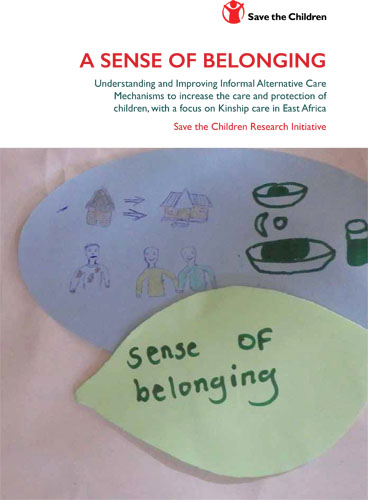
Understanding and improving informal alternative care mechanisms
Building upon a Save the Children regional participatory research initiative on kinship care that was undertaken in West Central Africa in 2012 – 2013, Save the Children’s East Africa Regional Office supported a similar process in East Africa, which resulted in this research report. The aim of the research in East Africa was to build knowledge on endogenous care practices within families and communities, especially informal kinship care, in order to increase the care and protection of children. The research on kinship care was implemented in Ethiopia, Kenya, and Zanzibar.
The research findings revealed that existing laws, policies and guidelines – particularly in Zanzibar and Kenya – do not have sufficient focus on informal kinship care practices which contributes to the lack of support provided to kinship care families. The findings also demonstrate that girls and boys experiences of kinship care are diverse and that outcomes for children are mixed.
One of the key debates that emerged were the risks attached to formalising kinship care. While formalisation of kinship care may increase monitoring and regulation preventing discrimination and mistreatment, and increasing caregivers and children’s access to services, it is also recognised that formalisation may adversely harm this traditional informal form of care, as some relatives may be more reluctant to care for relatives.
© Save the Children





Leave a Reply
Want to join the discussion?Feel free to contribute!